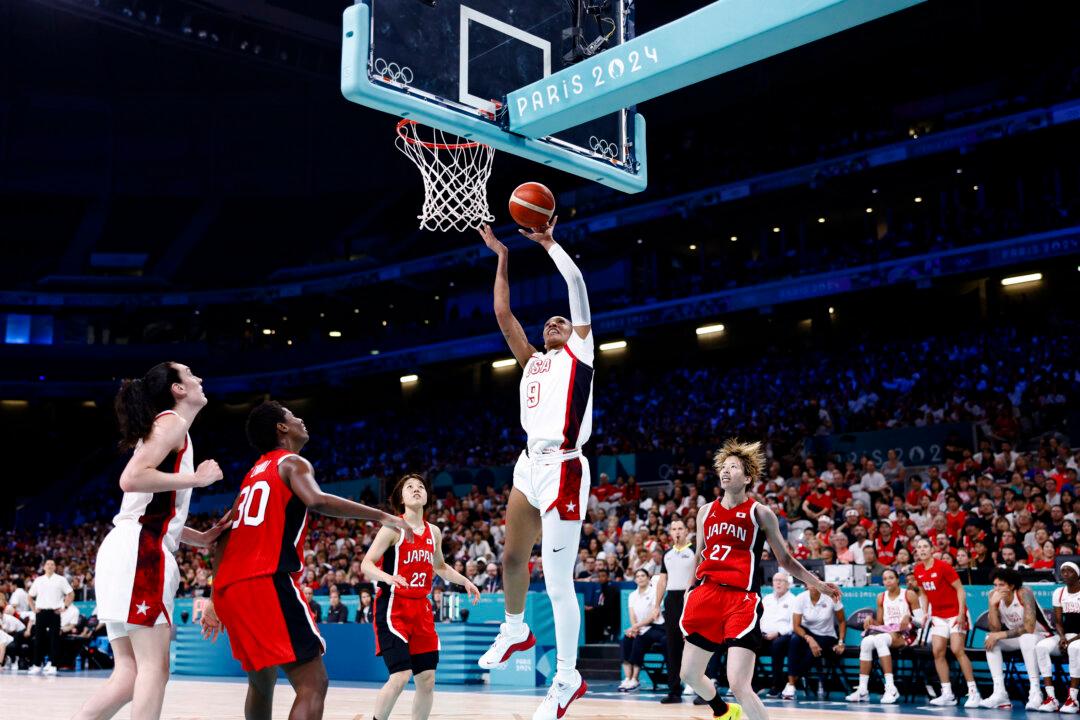The United States women’s basketball team started their chase for another gold medal on July 29 with a dominant 102–76 win over Japan in their first game of the Olympic tournament.
Team USA’s women’s basketball team has won seven consecutive gold medals in the Summer Olympics, with a bronze in 1992 breaking up nine gold medals overall. The Americans have also won the last four FIBA Women’s World Cup tournaments, most recently placing first in 2022.





